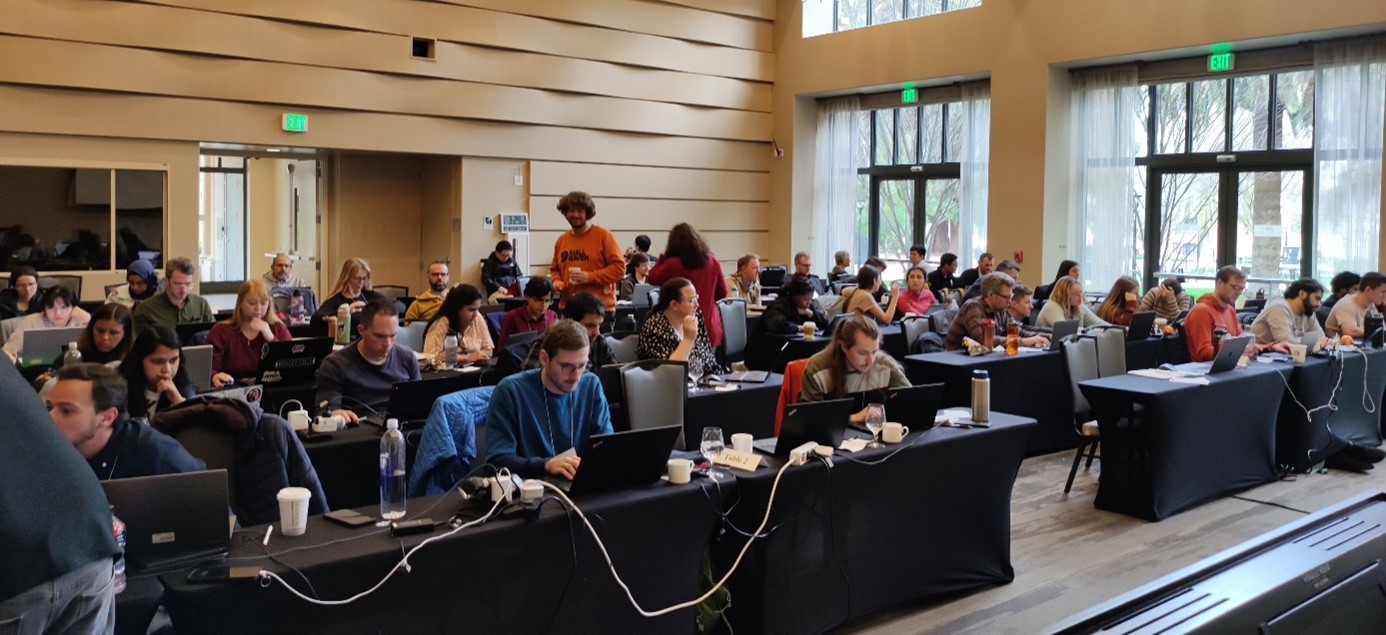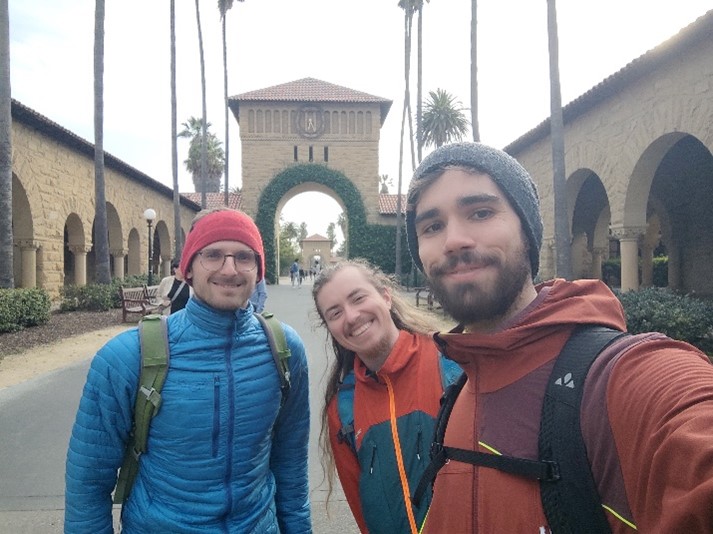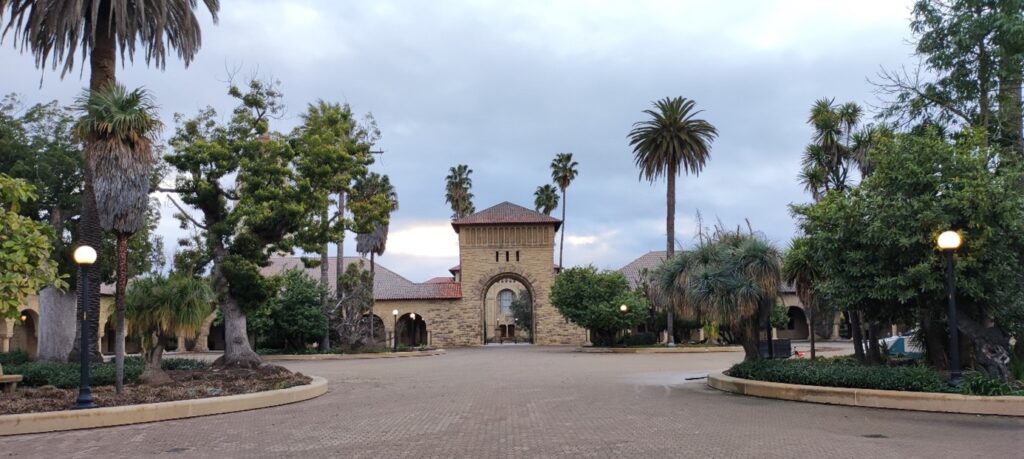
Three PhD students participated at the prestigious OpenSim+ Advanced Workshop at Stanford University
Three members of the Neuromechanics Research Group participated in a workshop at Stanford University in California, USA, in the beginning of March. This workshop intended for advanced users of the musculoskeletal modelling software OpenSim, provided an opportunity to collaborate with the software developers and explore new applications in research. Approximately 50 participants coming from around the globe engaged with their own data and research projects in this hands-on workshop and received support from the Stanford staff to navigate and overcome technical challenges.
Bernhard, Elias, and Willi collaborated on a project aimed at determining individualized cost functions, which represent each participant’s motor control strategy during walking. The goal was to synchronize predicted kinematics with experimentally measured kinematics. The resulting individual cost functions will play a crucial role in predicting the outcomes of surgical interventions targeting bony abnormalities, such as femoral de-rotation osteotomy. Such a modeling workflow has the potential to identify the most promising surgical intervention tailored to each specific patient, thereby advancing clinical care for individuals with bony deformities.
During the workshop a broad set of skills for working with most recent enhancements in OpenSim in general and OpenSim Moco applications specifically was developed and brought back home to Vienna. The basic workflow for the project has been developed during the three-day workshop and is now to be applied to the ample longitudinal data at our department to validate this simulation approach.
Elias and Willi were granted a travel grant of the PhaNuSpo Doctoral School to attend the workshop. Bernhard received a travel grant from the GAMMA community.



